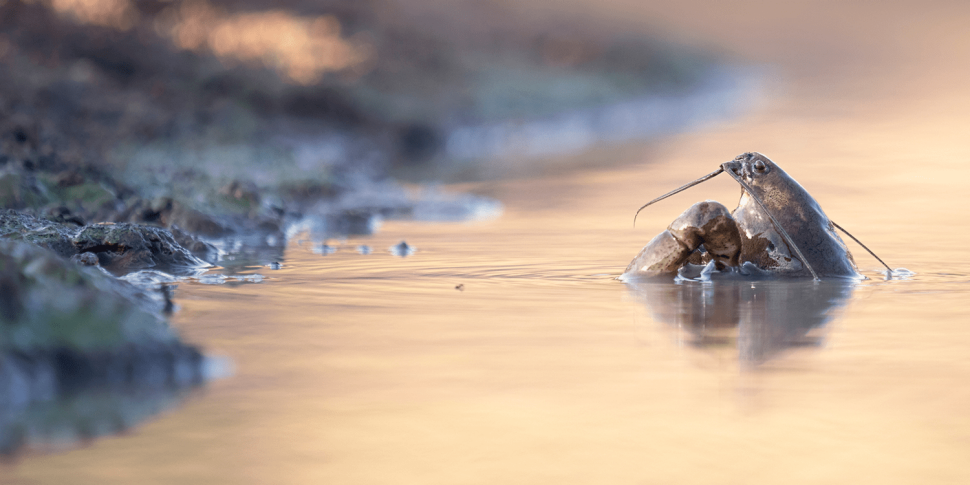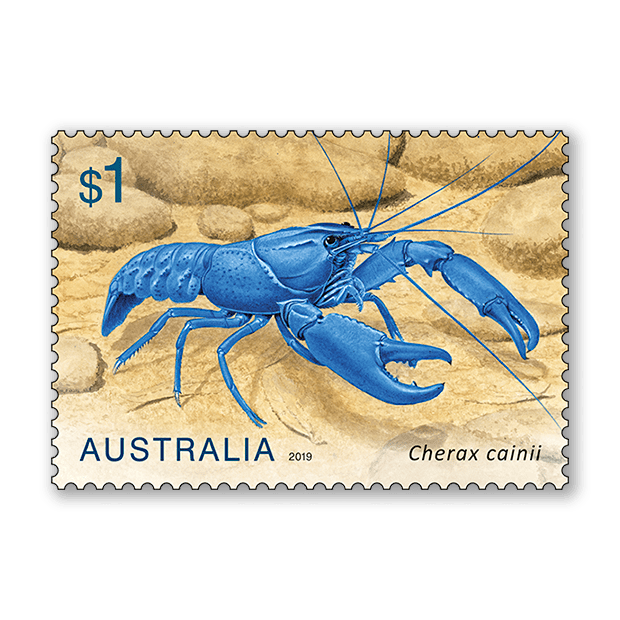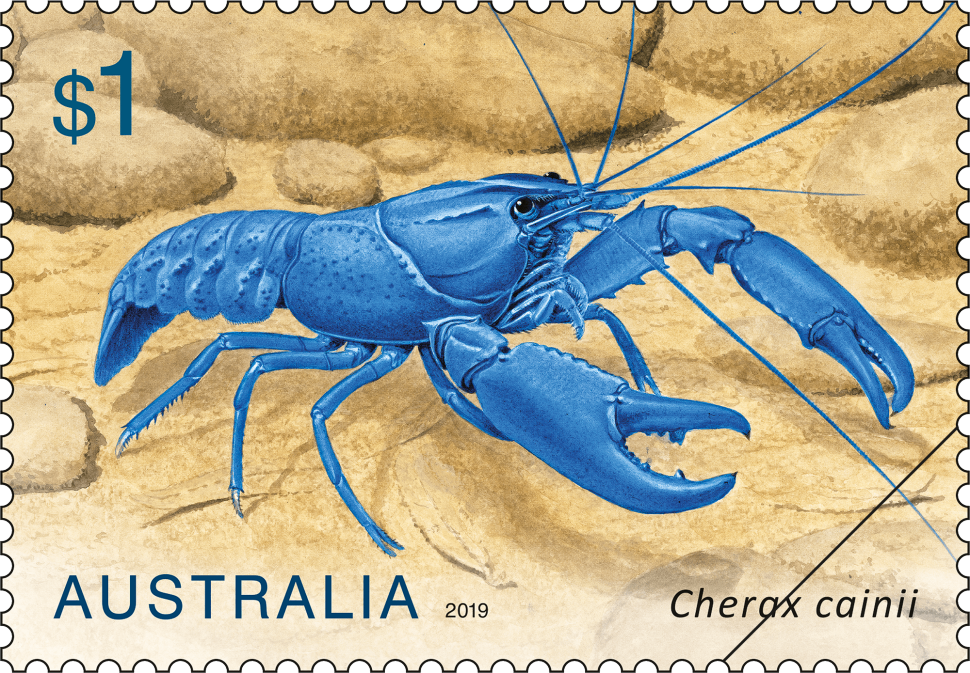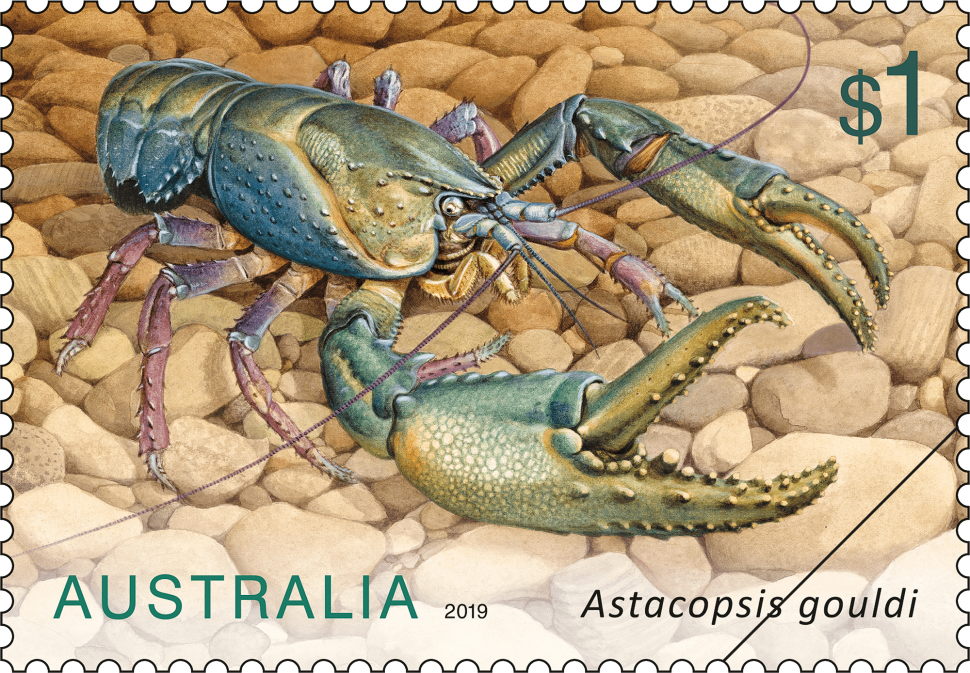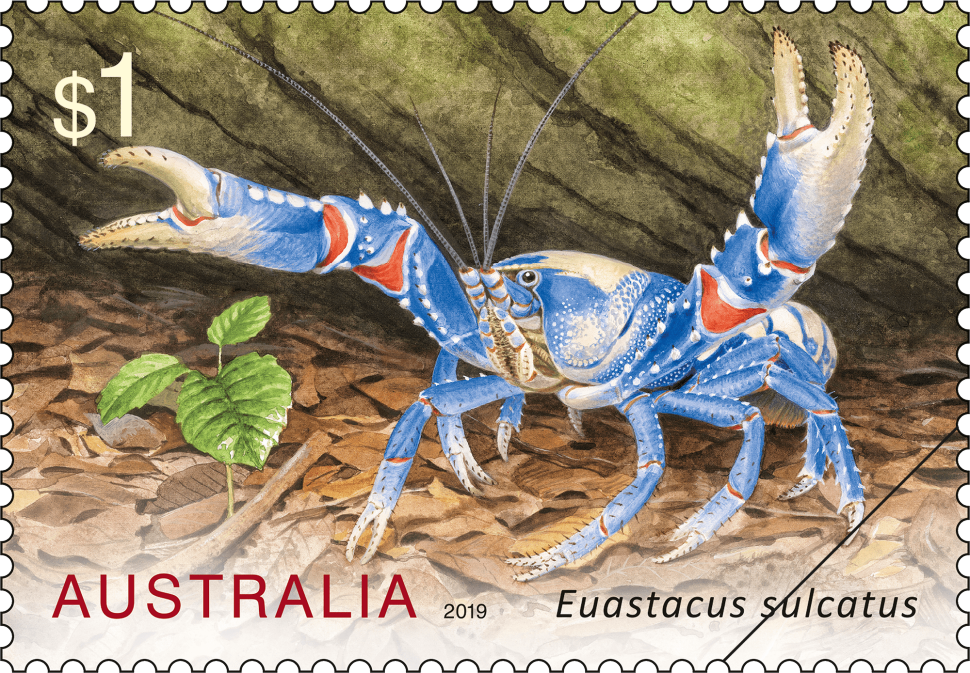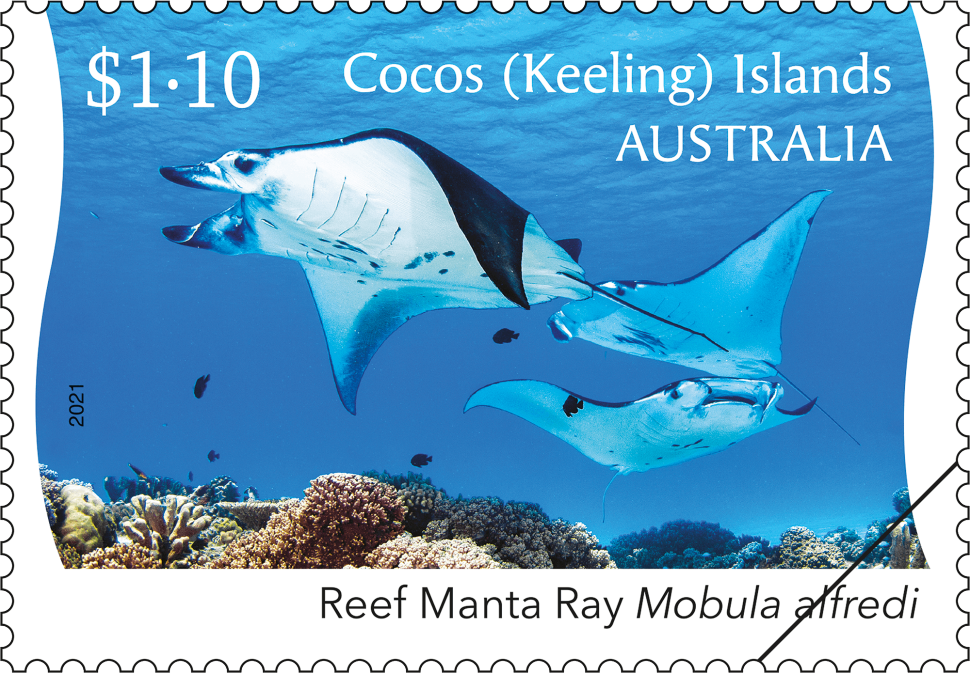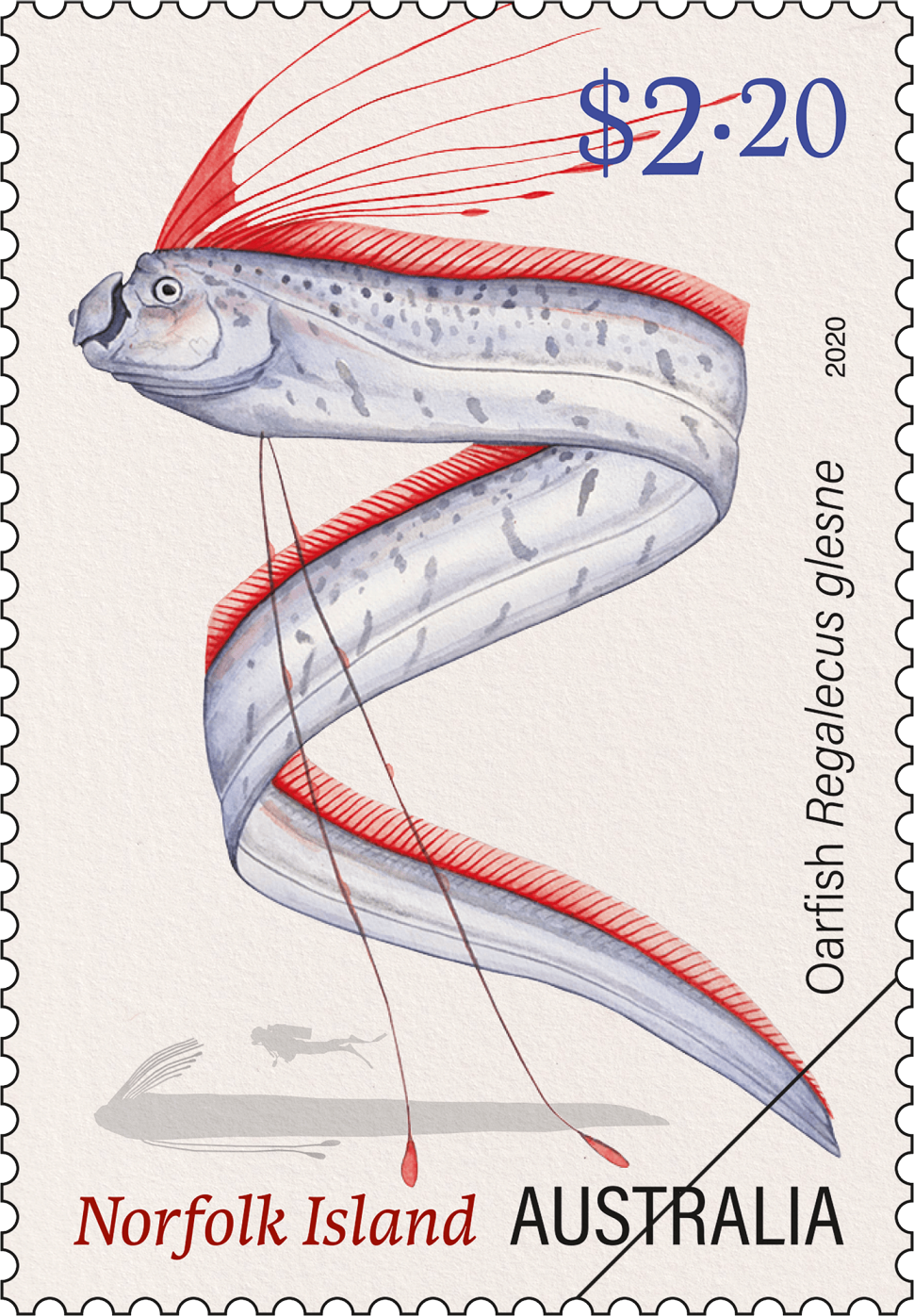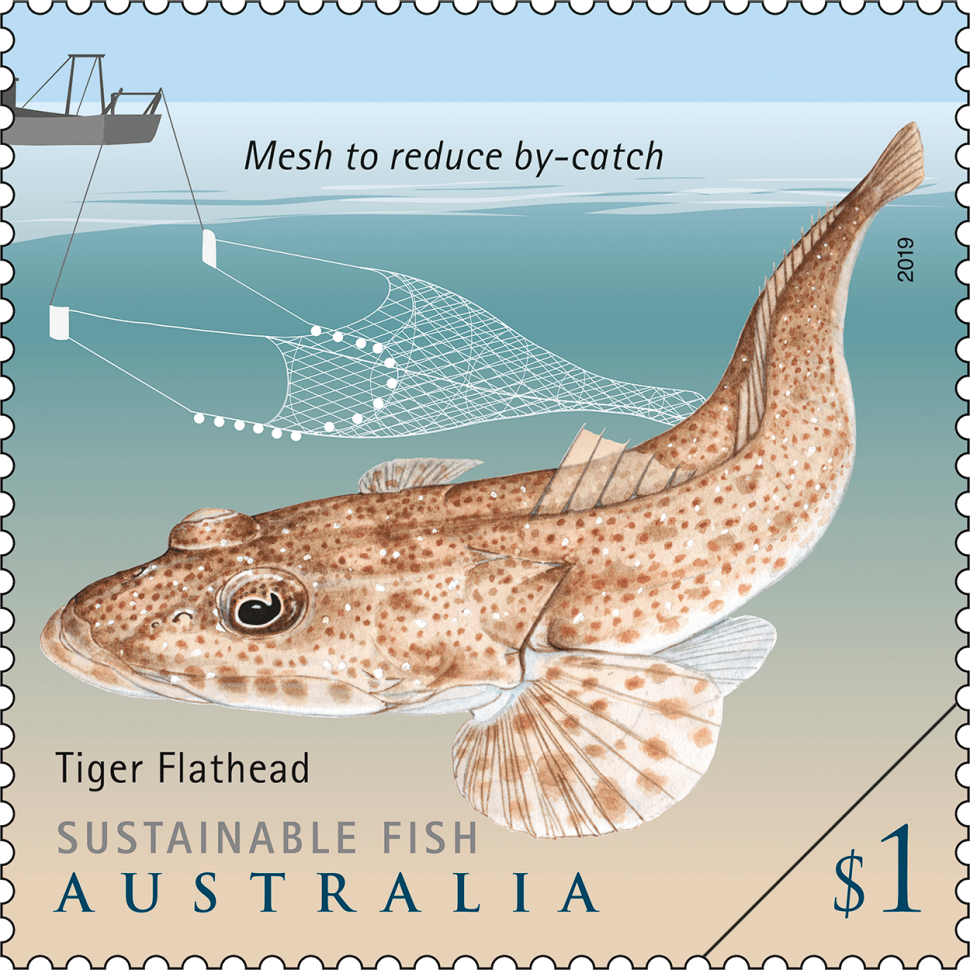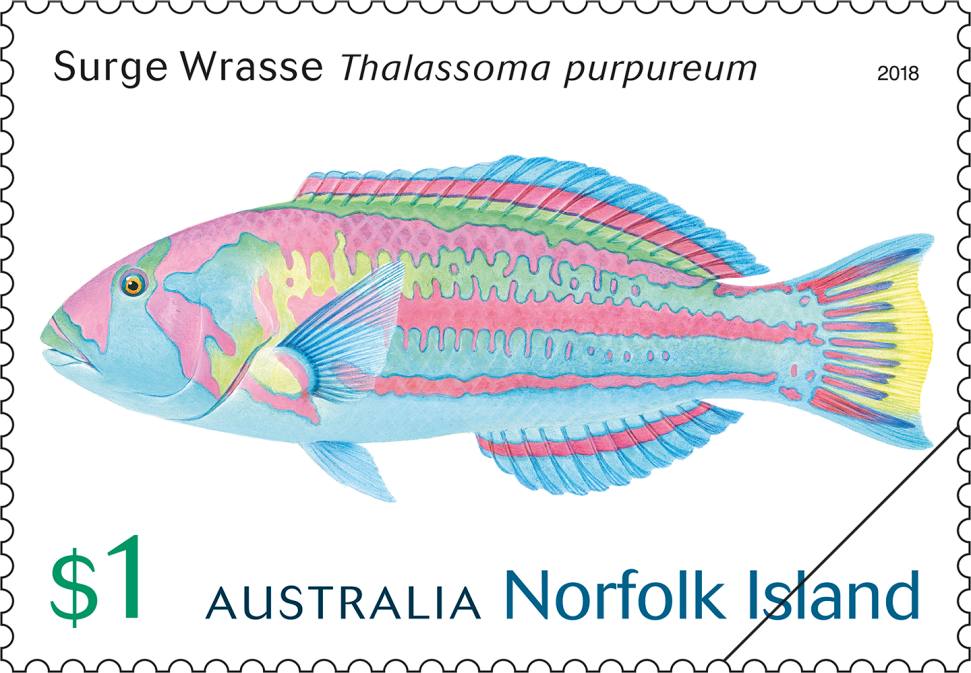Overview
Crayfish are heavy bodied crustaceans with an enlarged, pincer-like pair of front legs. They are Arthropods (as are insects, spiders, centipedes and millipedes), characterised by a hard outer shell made from calcium carbonate that acts as a skeleton. Crustaceans are distinguished from the other arthropods by their two pairs of antennae. Crayfish, like many crustaceans, have a shield running downwards from the head and over the entire thorax, known as a carapace. The carapace protects the gills and facilitates a continual flow of water that enables the crayfish to breathe.
All of Australia’s freshwater crayfish belong to the family Parastacidae, which includes more than 140 species – from the world’s smallest crayfish, the two-centimetre-long Eastern Swamp Crayfish (Gramastacus lacus) to the world’s largest, the Giant Freshwater Lobster (Astacopsis gouldi).
Crayfish can be found in a variety of freshwater habitats such as rivers, streams, dams, lakes and swamps. While crayfish are usually vegetarian, they’re actually capable of eating most things including meat. Crayfish are largely nocturnal, actively foraging at night. Many Australian native crayfish species are threatened and fishing is illegal without a permit.
The stamps in this issue feature illustrations by renowned painter, naturalist and zoologist Roger Swainston.
Technical specifications
- Issue date
- 2-July-2019
- Issue withdrawal date
- 31-January-2020
- Denomination
- 3 x $1
- Stamp illustration
- Roger Swainston
- Product design
- Simone Sakinofsky, Australia Post Design Studio
- Paper: gummed
- Tullis Russell
- Printer
- RA Printing
- Printing process
- Offset lithography
- Stamp size (mm)
- 37.5 x 26
- Perforations
- 13.86 x 14.6
- Sheet layout
- Modules of 50
- FDI Postmark
- Freshwater, QLD 4870
- FDI withdrawal date
- 31-July-2019
Growing to around 1.5 kilograms, the Smooth Marron (Cherax cainii) is endemic to rivers and dams of southwest Western Australia. A popular delicacy, the species is commercially farmed and is not threatened. The Smooth Marron is usually black to brown in colour with a rare, naturally occurring bright cobalt blue variation commonly farmed for aquarium display.
The colourful Lamington Spiny Crayfish (Euastacus sulcatus) is typically bright blue with white highlights and red connective tissue. Classified as vulnerable, the species is found in streams in the highland rainforests of south-east Queensland and north-east New South Wales and individuals weigh around 500 grams.
Shop our stamp collectables
Set of stamps:
This set of stamps contains all three stamps from the Freshwater Crayfish stamp issue.
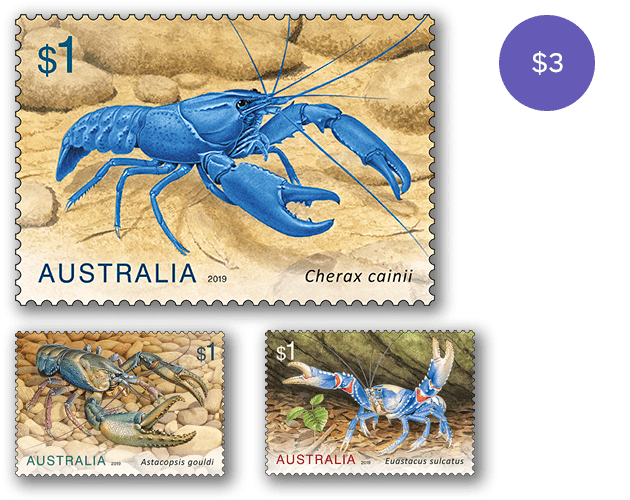
Stamp pack:
The Freshwater Crayfish stamp pack contains all three stamps from the stamp issue presented in high quality folder.
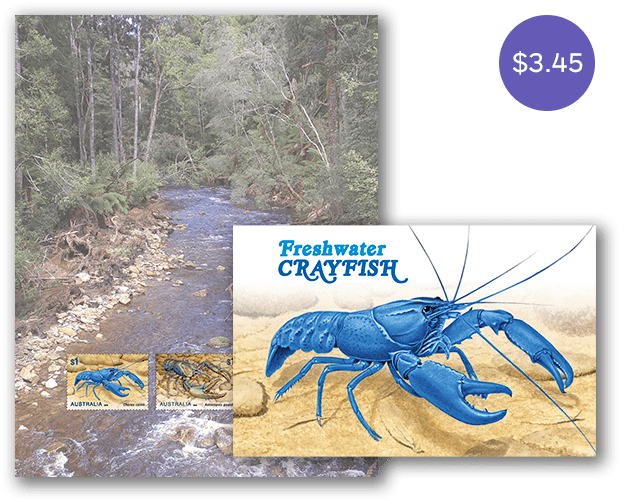
Maxicard set:
This maxicard set contains the three maxicards from the Freshwater Crayfish stamp issue.
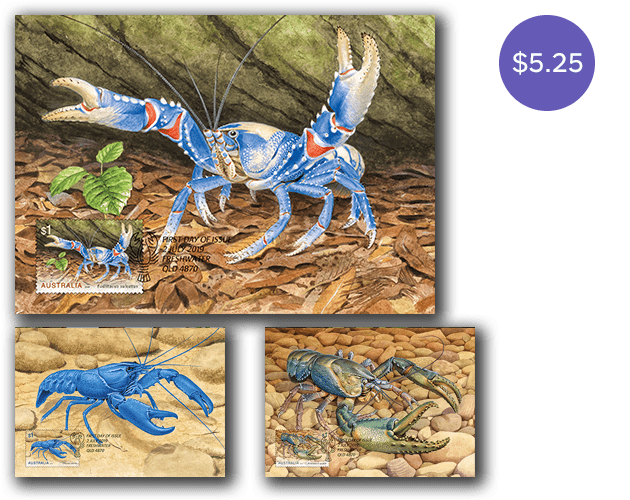
Gutter strip of 10:
The gutter strip consists of 10 x $1 Cherax cainii stamps from the Freshwater Crayfish stamp issue.
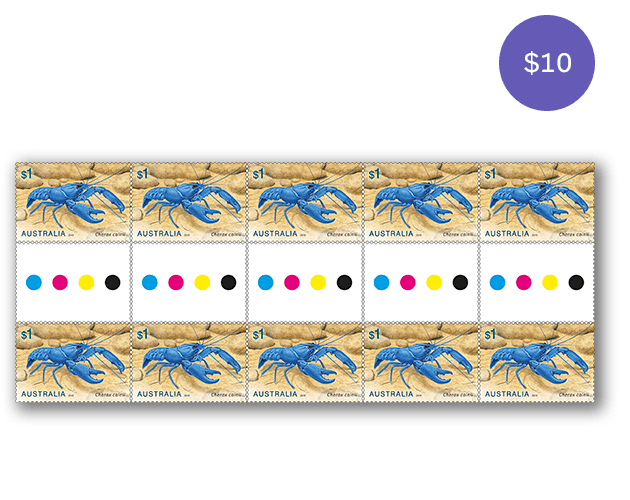
- Set of stamps
- Stamp pack
- Maxicard set
- Gutter strip of 10
Additional products:
- Freshwater Crayfish stamp and medallion cover
- Gutter strip 10 x $1 Freshwater Crayfish (Astacopsis gouldi) stamps
- Gutter strip 10 x $1 Freshwater Crayfish (Euastacus sulcatus) stamps
- Pictorial envelope for the Freshwater Crayfish stamp issue
- First day Freshwater Crayfish gummed stamps cover
This content was produced at the time of the stamp issue release date and will not be updated.
